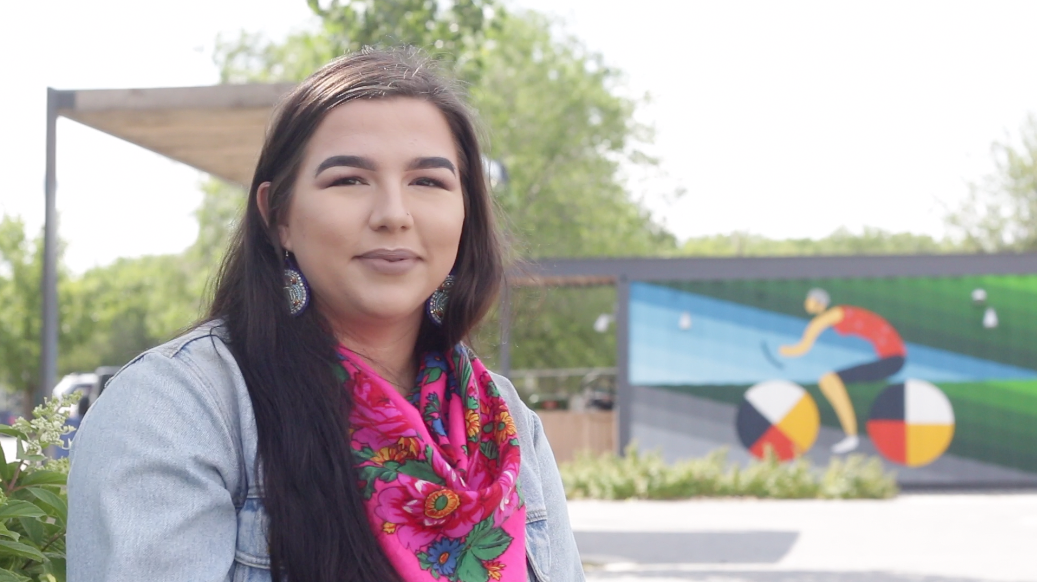
Study participant, Jordyn Pepin-Sledz, said creating a sense of cultural connection amongst Indigenous youth is important for sustained success in their participation in sport and recreation
Understanding positive youth development in sport through the voices of Indigenous youth
Self-confidence and cultural relevancy may be the biggest drivers of successful participation for Indigenous youth in sports.
This is according to a recent paper co-authored by Dr. Leisha Strachan, an associate professor in the University of Manitoba’s Faculty of Kinesiology and Recreation Management.
The study aimed to understand how positive youth development through sport and physical activity is understood and experienced by Indigenous youth living in urban settings.
Highlighted is the idea that cultural relevancy is important when looking at how sport programs should promote positive development.
“We need to be more mindful and aware of structuring sport and physical activity programming so that it is meaningful to Indigenous youth,” said Strachan.
“These results might motivate coaches and sport programmers to more fully understand their participants, and encourage lifelong participation where participants can ‘see themselves’ and feel more comfortable in the setting.”
Research in positive youth development claims that structured physical activities are critical for development. The 5 Cs (confidence, competence, character, connection, caring) are a gold standard when discussing positive outcomes, and are important characteristics for youth to possess to attain the sixth C—contribution.
Recent works in sport psychology have called for research to understand youth sport and physical activity from diverse cultural perspectives. This study used a community-based participatory framework, and 43 youth from across three Canadian settings were recruited. Talking circles were used to collect the data. Results point to some unique understandings of the 5 Cs by the participants—namely, the inclusion of the self within each C.
Most participants discussed that having belief in oneself will help ultimately build the competence needed to participate in sport and physical activity.
Jordyn Pepin-Sledz, an Indigenous U of M student and talking circle participant, said connection was her most valued C.
“Apart from hockey, there really isn’t many Indigenous role models to look up to in sport, which prohibits a lot of Indigenous youth from getting involved, or being able to see themselves in that place of participating in sport,” said Pepin-Sledz.
“Connection is so important, because it links all the other Cs together.”
Understanding positive youth development in sport through the voices of Indigenous youth is co-authored by Dr. Tara-Leigh McHugh, Dr. Courtney Mason, and features Dr. Joannie Halas and Dr. Heather McRae as collaborators.






